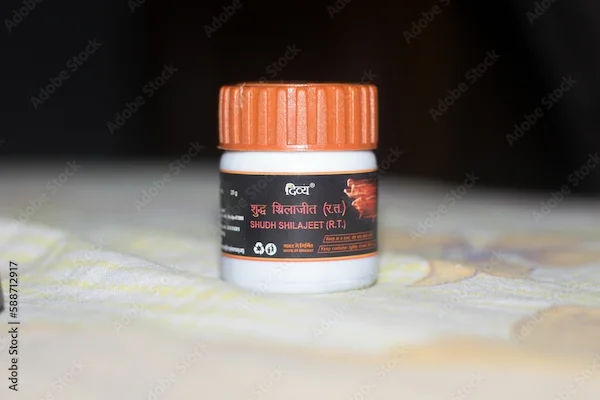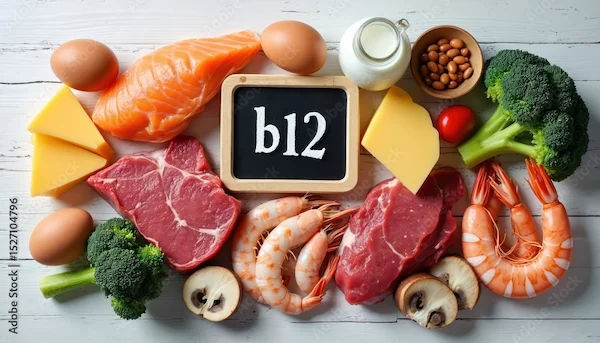Essential Vitamins for Women's Health
know about the essential vitamins important for women, know why it's important, sources, and who is at risk for deficiency. Learn about the lifestyle tips for better women’s health.


Introduction
Women have unique nutritional needs that change throughout different stages of life, whether during adolescence, pregnancy, breastfeeding, or menopause. Vitamins play a crucial role in maintaining energy levels, bone health, immunity, and overall well-being. In this article, we’ll explore the most important vitamins for women, their benefits, natural sources, and tips to ensure you’re getting enough of them.
Why Are Vitamins Important for Women?
Vitamins are essential nutrients that help the body function properly. Women, in particular, need certain vitamins in higher amounts due to hormonal changes, menstruation, pregnancy, and ageing. A deficiency in any of these vitamins can lead to fatigue, weakened immunity, brittle bones, and other health issues.
Key Vitamins Every Woman Should Know About
1. Vitamin D – The Sunshine Vitamin
Why it’s important:
Supports bone health by helping the body absorb calcium.
Boosts immunity and mood.
Reduces the risk of osteoporosis (weak bones).
Sources:
Sunlight (10-15 minutes of exposure daily).
Fatty fish (salmon, mackerel).
Fortified milk, eggs, and mushrooms.
Who’s at risk of deficiency?
Women who spend little time outdoors.
Those with darker skin (melanin reduces vitamin D absorption).
Postmenopausal women (due to bone density loss).
Tip: If you don’t get enough sunlight, consider a vitamin D supplement after consulting a doctor.
Consult Top Specialists for Personalised Tips
2. Vitamin B12 – The Energy Booster
Why it’s important:
Supports nerve function and red blood cell production.
Prevents anaemia (low red blood cells), which causes fatigue.
Essential for brain health.
Sources:
Meat, fish, eggs, and dairy.
Fortified cereals (for vegetarians/vegans).
Who’s at risk of deficiency?
Vegetarians and vegans (since B12 is mostly found in animal products).
Older women (absorption decreases with age).
Tip: If you follow a plant-based diet, consider B12 supplements or fortified foods.
3. Folate (Vitamin B9) – Vital for Pregnancy
Why it’s important:
Prevents birth defects in early pregnancy (neural tube defects).
Supports cell growth and red blood cell formation.
Helps prevent anaemia.
Sources:
Leafy greens (spinach, kale).
Lentils, beans, citrus fruits.
Fortified grains.
Who needs extra folate?
Pregnant women or those planning pregnancy.
Women with heavy menstrual bleeding.
Tip: Doctors often recommend folic acid supplements before and during pregnancy.
4. Iron – The Oxygen Carrier
Why it’s important:
Helps make haemoglobin, which carries oxygen in the blood.
Prevents iron-deficiency anaemia (fatigue, weakness).
Sources:
Red meat, poultry, and fish.
Spinach, lentils, tofu.
Pair with vitamin C (like oranges) to boost absorption.
Who’s at risk of deficiency?
Women with heavy periods.
Pregnant women (increased blood volume needs).
Tip: Avoid drinking tea/coffee with iron-rich meals—they reduce absorption.
5. Calcium – The Bone Protector
Why it’s important:
Strengthens bones and teeth.
Helps prevent osteoporosis (especially after menopause).
Sources:
Dairy (milk, yoghurt, cheese).
Leafy greens, almonds, fortified plant milk.
Who needs more calcium?
Women over 50 (bone loss accelerates).
Those who avoid dairy.
Tip: Combine calcium with vitamin D for better absorption.
6. Vitamin C – The Immunity Booster
Why it’s important:
Supports immune function.
Helps in collagen production (healthy skin, joints).
Enhances iron absorption.
Sources:
Citrus fruits (oranges, lemons).
Bell peppers, strawberries, broccoli.
Tip: Eat fresh fruits rather than juices to avoid excess sugar.
7. Vitamin E – The Skin Protector
Why it’s important:
Acts as an antioxidant (fights cell damage).
Supports skin and hair health.
Sources:
Nuts (almonds, peanuts).
Seeds, spinach, and avocado.
How to Ensure You Get Enough Vitamins?
The following are the ways which will ensure you get enough vitamins
1. Eat a Balanced Diet – Include a variety of fruits, vegetables, whole grains, lean proteins, and healthy fats.
2. Consider Supplements (if needed) – Some women may need supplements (like iron, vitamin D, or B12) after consulting a doctor.
3. Get Regular Check-ups – Blood tests can detect deficiencies early.
4. Lifestyle Adjustments – Spend time in sunlight, limit processed foods, and stay hydrated.
When to See a Doctor?
If you experience:
Constant fatigue
Hair loss
Frequent infections
Brittle nails
Heavy menstrual bleeding
These could be signs of vitamin deficiencies. A simple blood test can help identify what’s missing.
Final Thoughts
A well-balanced diet is the best way to get essential vitamins. However, depending on age, diet, and health conditions, some women may need supplements. If you’re unsure about your vitamin levels, consult a doctor or nutritionist for personalised advice.
Consult Top Nutritionists
Consult Top Specialists for Personalised Tips
Dr Sumanth R
General Physician
2 Years • MBBS
Bengaluru
PRESTIGE SHANTHINIKETAN - SOCIETY CLINIC, Bengaluru
Dr. Sasikamalam
General Practitioner
1 Years • MBBS
COIMBATORE
Apollo Sugar Clinic Coimbatore, COIMBATORE

Dr. Ramalinga Reddy
General Physician
5 Years • MBBS MD General medicine
Bengaluru
PRESTIGE SHANTHINIKETAN - SOCIETY CLINIC, Bengaluru
Mrs Sneha P V
Nutritionist
10 Years • Master of science in Food and Nutrition
Bengaluru
Apollo Clinic, Sarjapur Road, Bengaluru

Dr. Bhukya Pavan Kalyan
General Physician
5 Years • MBBS DNB Paediatrics
Bengaluru
PRESTIGE SHANTHINIKETAN - SOCIETY CLINIC, Bengaluru
Consult Top Nutritionists
Dr Sumanth R
General Physician
2 Years • MBBS
Bengaluru
PRESTIGE SHANTHINIKETAN - SOCIETY CLINIC, Bengaluru
Dr. Sasikamalam
General Practitioner
1 Years • MBBS
COIMBATORE
Apollo Sugar Clinic Coimbatore, COIMBATORE

Dr. Ramalinga Reddy
General Physician
5 Years • MBBS MD General medicine
Bengaluru
PRESTIGE SHANTHINIKETAN - SOCIETY CLINIC, Bengaluru
Mrs Sneha P V
Nutritionist
10 Years • Master of science in Food and Nutrition
Bengaluru
Apollo Clinic, Sarjapur Road, Bengaluru

Dr. Bhukya Pavan Kalyan
General Physician
5 Years • MBBS DNB Paediatrics
Bengaluru
PRESTIGE SHANTHINIKETAN - SOCIETY CLINIC, Bengaluru




